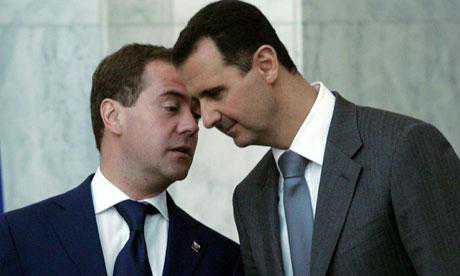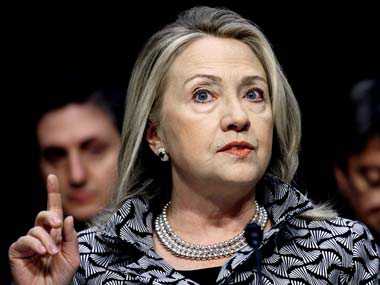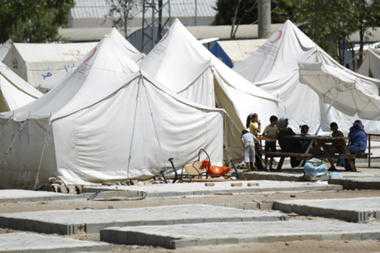Webster G. Tarpley, Ph.D.
 PressTV
PressTV
June 27, 2012
A political analyst says a Turkish fighter jet that recently violated Syrian airspace and was downed by Damascus was a ploy to provoke the country.
The comment comes as Turkey’s Prime Minister Recep Tayyip Erdogan says his government would retaliate against Damascus over the downing of the Turkish fighter jet by the Syrian army.
Syria on Friday said that a Turkish warplane, a F-4 Phantom, was shot down in Syrian territorial waters west of the village of Om al-Tuyour in Lattakia Province, 10 kilometers from the beach.
Syrian military stressed on Friday that it had engaged the jet in the Syrian airspace “according to the laws that govern such situations.”
Erdogan said Turkey’s military jet violated the Syrian airspace for a short time and “by mistake” and it was shot down by Syria “without a single warning.”
Meanwhile, the North Atlantic Treaty Organization (NATO) has condemned the downing of the Turkish plane as ‘unacceptable,’ and promised full support for Ankara. Turkey had called for a meeting of the alliance to discuss the incident.
Syrian Foreign Ministry spokesman Jihad Makdissi on Monday warned NATO against forging any anti-Syria conspiracy on the downing of the Turkish fighter jet.
Press TV has conducted an interview with author and historian, Webster Griffin Tarpley, to further discuss the issue.
The show also offers the opinions of two additional guests: political analyst, Taleb Ibrahim and Press TV correspondent, Natalie Carney.
What follows is an approximate transcription of the interview:
Press TV: Dr. Tarpley, let’s have your view on this as well some people were saying that this is not about starting a foreign military intervention that has already started, this could be about taking it to the next level. Now do you think this is what this war plane issue is all about? Or do you think that as Natalie was saying observers believing that this is just a war of words?
Tarpley: I think it’s a preparation for escalation and it represents an escalation. The information I have is that this Turkish war plane which is an F4 phantom configured as a reconnaissance aircraft was repeatedly flying into Syrian airspace then out over the Mediterranean then back into Syrian airspace, a kind of game of cat and mouse with the goal of provoking these Syrian radars to light up, to go into action so that all of that could be monitored and the nature of the Syrian response could be determined. It is perfectly possible also that it might have been seen as a cruise missile coming from the Mediterranean by the Syrian side.
What it shows is that the Syrian air defense is capable, it’s on alert and it will not allow any funny business going on. So I think that will have to be a sobering message to NATO that if you attempt to attack Syria, you could expect rather heavy losses from the air defense.
Now the further political ramifications Erdogan I think has acted with breath-taking irresponsibility and folly. He has gotten himself locked into this confrontation and where does it lead? It seems to lead towards escalation; there was all this irresponsible talk about article 5 of NATO that the entire block has to mobilize for Turkey over one aircraft. This is simply foolish and even inside Turkey we have the Republican party of a guy called [Kemal] Kilicdaroglu who calls on the government to stop needless provocations of Syria. In other words back off and I think that would be a good message to Erdogan. He is making a fool of himself.
Press TV: With NATO saying in response to that request by Turkey that we want to discuss this in a meeting, NATO has come out clearly saying that we support Ankara in that what Syria has done is unacceptable but has NATO got a plan, a clear plan to intervene directly or get involved militarily in Syria yet?
Tarpley: Well, of course secretary Panetta of the Pentagon has been quoted in the last couple of weeks saying “of course we have a plan for that” and General Dempsey has also said the same thing.
I would like to point out if Erdogan wants to be the new regional hegemon, he is doing it in the wrong way because he is not looking like a powerful leader, he is looking like a puppet of Saudi Arabia and Qatar and the United Arab Emirates and this is a rather pathetic thing.
They are goating him towards a war in which they will not be involved but he will be. He’ll be left holding the bag and they will continue to send money and troops. I think the most dangerous thing that Erdogan has done in his speech depending on how it was translated he seems to say: if Syria approaches the Turkish border with military forces then the Turkish forces will respond with gunfire and so forth.
Now what does that mean? It sounds like he is thinking in terms of a buffer zone or humanitarian corridor or something like this. That is a recipe obviously for a wider conflict. We have to remember President Putin of Russia has just been in the Middle East.
And he laid down once again the Russian opposition’s very firm rejection of this military solution and there is always that question if you provoke Russia, what will they do? How will they respond and this is an area now that with President Putin back in power it’s not so easy to predict what Russia might do?
I’m sure that Turkey is aware that they may be more powerful than Syria but then to the North of them there is somebody else who is more powerful still. So this has to play obviously a role. The best thing I would say to Erdogan, the Turkish expression is “vaziyeti kurtaran bahane” that is find a face saving solution and butt out of this, it leads nowhere.
Press TV: Mr. Tarpley, I’d just like to give you the comments made by the White House spokesman lately about the situation in Syria, he said that I’m quoting here, “high level defections, fighting closer to Damascus and the downing of the Turkish jet are all signs that Assad’s regime is losing control and that our view is transition cannot include Assad. Now what do you think that means? Would you agree with it and what does that say about the US stance?
Tarpley: It shows that Obama is every bit as bad as Bush ever was in terms of arrogance and hypocrisy and interfering in the internal affairs of sovereign states. It’s also a lot of wishful thinking I think.
We got to keep this in perspective; Erdogan has essentially turned Southern Turkey into a base for al Qaida. We have reports of tourists who go to the Eskandaru area and come back saying I had some pretty rough looking characters in the hotel next door.
So this is a bad idea. Now looking forward to this conference of course Iran must attend- it’s got to be all interested parties, you can’t exclude anybody that would be absolutely unacceptable.
It seems to me though the missing ingredient is a clear denunciation of what the Obama administration has done. In other words providing material support to terrorism with these CIA officers in southern Turkey, sending weapons into Syria and we even have reports- I can’t verify them from Israeli sources that say once again British and other special forces from NATO are operating from time to time at least on the Syrian side of the border, in that northern area that MI6…




 PressTV
PressTV



